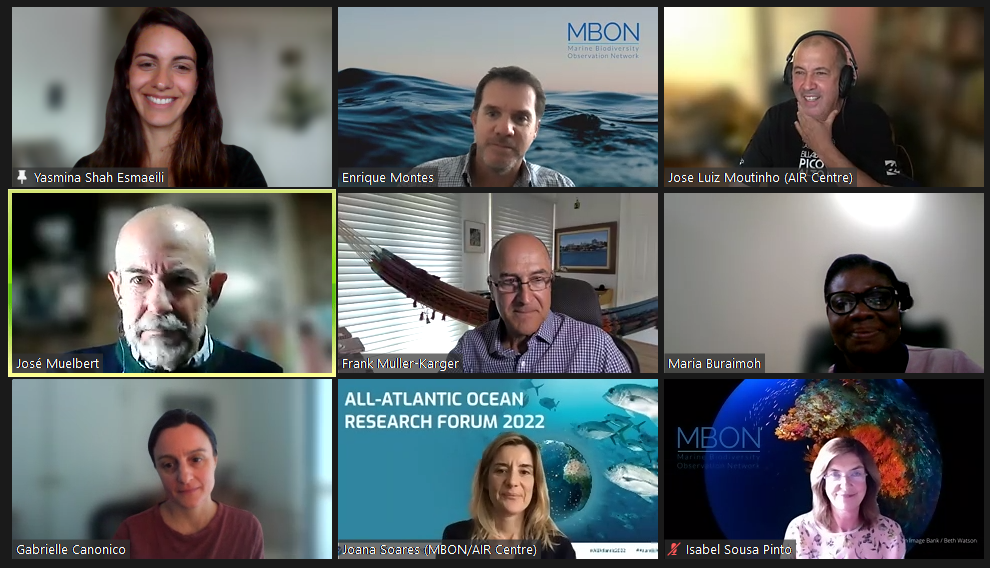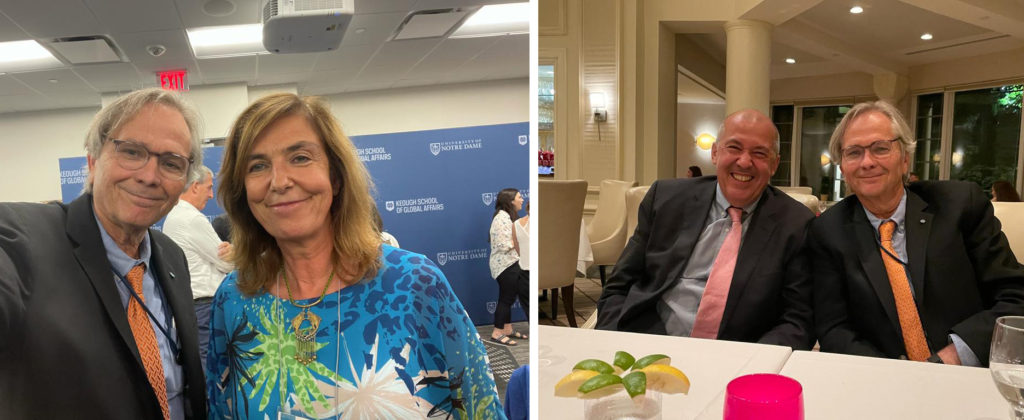The All-Atlantic Ocean Research Alliance Forum held a Scientific Event in Brasilia (Brazil) from May 21 to June 2, 2022. The Marine Biodiversity Observation Network (MBON) partnered with the Ocean Best Practices System (OBPS), the Ocean Biodiversity Information System (OBIS), and the Global Ocean Observing System (GOOS) of the Intergovernmental Oceanographic Commission (IOC) to hold a virtual side event to advance the co-design of solutions that require biology and ecosystem observations integrated with traditional ocean observing. Emerging technologies now make it possible to incorporate biology and ecosystem Essential Ocean Variables (EOV) observations as well as Biodiversity Essential Variables (EBV) into surveys and monitoring programs at local and regional scales. Best practices allow for this information to be interoperable, scalable, usable, and implementable by local groups and nations, and across ocean basins.
This session promoted dialogue about local stakeholder needs for monitoring, information, and capacity development in different parts of the Atlantic. MBON provides a platform for such a community of practice. The MBON secretariat, hosted by the AIR Centre Earth Observation (EO) Laboratory at Terceira Island-Azores, helps coordinate and focus the community of practice on addressing societal problems in the face of the climate and biodiversity crisis.

During this side event, experts and stakeholders reviewed co-design strategies conducted under the MBON and the Marine Life 2030 Programme endorsed by the UN Decade of Ocean Science for Sustainable Development. The strategy is based on three pillars of action: Learning Together, Observing Life, and Building Solutions. The cross-cutting elements are efforts to share knowledge and build communities, converge on standards for observing and data management, and developing metrics of success through co-design. The implementation includes the MBON Pole to Pole framework for local observations of marine life and biodiversity using a basin-scale framework for interoperability, building on regional elements of GOOS and guidelines for data flow developed by OBIS and OBPS.
The goal is to better manage ocean uses and satisfy national reporting requirements for targets of Sustainable Development Goals, the post-2020 Convention on Biological Diversity, and other national and international frameworks.
Participants developed the following statement as an outcome of the side event.
The outcomes of the Scientific Event were highlighted at the Ministerial Event that took place July 13-14, 2022, in Washington, D.C. (USA). MBON and Marine Life 2030 join the conversations on advancing a new future for an All-Atlantic Alliance, joining together the marine research community with policy to discuss solutions for a sustainable ocean. This event featured the signing of the All-Atlantic Ocean Research and Innovation Alliance Declaration, with seven partner countries (the European Union, Argentina, Brazil, Canada, Cabo Verde, Morocco, South Africa, and the United States). In Washington, D.C. on 13 July, 2022, the European Union, Argentina, Brazil, Canada, Cabo Verde, Morocco, South Africa, and the United States signed a new All-Atlantic Ocean Research and Innovation Declaration. This will continue the successful journey of ocean science diplomacy and set a common path forward for ocean research cooperation in the Atlantic, from Pole to Pole, for the next decade.

